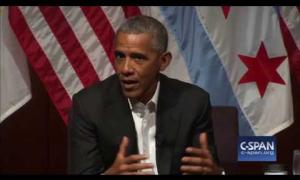The Role of Global Companies in Bridging Wealth Disparity
October 12, 2016
How can large businesses help lift up the downtrodden and desperate?
Good evening and thank you so much!
It’s wonderful to be here in this extraordinary setting with this distinguished group of leaders, starting with my good friend, Efthymiadis Agrotechnology Group Chairman Nikos Efthymiadis.
Nikos knows so well how vitally important the private sector is in this economy—in any economy—in achieving growth, fueling innovation, and creating jobs and opportunity for the future.
I’m very pleased to be here with Nikos—who I’ve been privileged to know for many years—and his family, his wife Mary along with Thymis, Vassos and Loukia. Wonderful to see you all!
I’m honored, on behalf of everyone at Coca-Cola, to help celebrate 80 years of value creation by the Efthymiadis Agrotechnology Group.
Agriculture has been part of Greek life for millennia.
And, yet, the legacy built by this organization over the course of 80 short years is truly remarkable.
Since 1935, the Efthymiadis name has stood for quality and innovation in feeding individuals and families across this country and beyond.
And I invite you to join me in saluting the past, present and future of this great business that’s doing so much to sustainably create value, growth and jobs!
Tonight, we gather to discuss a subject of great importance and timeliness. And I’m honored to be here with my dear friend Andrew Liveris.
Around the world, wealth disparity is rising. It’s rising within communities and nations. And it’s rising between nations.
I certainly believe multinational businesses can and must help bridge this gap.
And we have the best opportunity to do so by helping improve the lives of those in difficult circumstances, from the very poor to those in the middle class being squeezed by modernity.
The central question before us, I believe, is How?
How can large businesses help lift up the downtrodden and desperate?
And I’d reply with four closely related answers:
Number one: through growth and value creation.
Number two: through our sustainability efforts.
Number three: through partnerships with government and civil society.
And number four: through sharing our values and our enduring commitment to workers.
And I’ll talk about each one.
First and foremost, we can help alleviate economic distress as engines of growth and value creation.
Businesses create value for our shareowners, our employees and our business partners.
And this has always been true.
Now, however, we must expand the set of stakeholders for whom we create value.
We must create more value for the markets we serve, more value for government and NGO partners and more value for the public at-large.
This is not a new idea. But today’s multinationals must pursue it with more passion if we are to keep growing in an increasingly interconnected world.
A fundamental part of this is being a local business to the greatest extent possible.
Our business model, which relies on local bottling partners and local people, helps us create more local value.
Here in Greece, we’ve been a local business since 1969, with our system now employing more than 1,800 people and supporting another 20,000 jobs.
We work with 4,000 Greek suppliers and create value for 130,000 customer outlets in this country. And 96 percent of the drinks we sell here are made here.
Secondly—and this is highly related—businesses like ours can make a real difference by choosing to create greater community value than ever before.
At Coca-Cola, we’re focused on the Three Ws of Women, Water and Wellbeing.
Women are very often pillars of the communities we serve…
They tend to invest in their families and their future…
And, while important strides have been made, women remain at an economic disadvantage in almost every corner of the globe.
Right now, we’re striving to help enable 5 million women entrepreneurs globally by 2020.
With this drive, called 5by20, we’ve reached over a million women entrepreneurs with business training, mentoring, improved access to capital and more.
And this is making a real difference in the lives of these women.
- Strengthening their businesses…
- Creating more value for their families and communities…
- And getting more young people enrolled in schools and training programs and even universities.
We’re now scaling up the most effective approaches in order to reach five million women by 2020.
In Water, we made a public commitment in 2007 to become water neutral by 2020—returning to nature and our communities every liter used in our beverages and their production.
Earlier today, we announced that we’d met our goal in 2015—five years ahead of schedule.
- By increasing water use efficiency…
- By cleaning and recycling water… and
- By protecting river basins and other water resources.
And we’ll keep pushing, with our partners, to stay water neutral as we grow.
Water stress, of course, is very real in Greece, and our business is trying to do our part here.
Bringing together municipalities and The Coca-Cola Foundation, the Mission Water initiative is celebrating 10 years of action in 2016.
Focusing on water-stressed islands, this effort uses water harvesting systems across 29 Greek islands to give back more than 200 million liters of water a year and improve the lives of 49,000 people.
Our third focus is Wellbeing. Physical wellbeing. Psychological wellbeing. Social wellbeing.
Obesity and the diseases that go with it are of central importance to us. And we know we must be part of the solution.
Tonight, we’re working to meet the needs of tomorrow’s consumers with:
- Smaller packs of full-calorie drinks…
- More availability and marketing of zero- and reduced-calorie drinks…
- And more innovation on natural sweeteners and new, great-tasting drinks with fewer calories.
Here in Greece, we’ve reduced soft drink calories by 20 percent, and we offer no- or low-calorie variants of all our sparkling brands.
Businesses like ours can also lead in combating environmental degradation, which disproportionately harms low-income people.
For us, this means leading on
- HFC-free cooler technology…
- higher-yield, lower-impact agricultural practices…
- lower-carbon transportation solutions…
- and packaging innovations like PlantBottle, which is up to 30 percent made from plant material instead of petroleum.
Third: business can help people through what I call “Golden Triangle” partnerships.
After all, one business is only one business, with limited ideas, limited expertise and limited resources.
But, when we partner with governments and civil society organizations like NGOs and universities, the opportunities are truly limitless.
Why? Because each sector brings something distinctive and powerful to the table.
And together we can accomplish more than any one company or even one sector of society could hope to accomplish alone.
Here in Greece, we’re working with local partners to support youth employment and entrepreneurship.
We’ve teamed up with the Global Shapers Athens Hub—a project of the World Economic Forum—The Hellenic Initiative and more than 65 companies here in Greece on the ReGeneration project.
This effort provides talented graduates with six-month paid traineeships. More than 200 scholars have taken part so far, with 85 percent finding full-time work at the program’s end.
In addition, our bottling partners at Coca-Cola Tria Epsilon have operated a graduate trainee program for more than 25 years.
And last year, The Coca-Cola Foundation and Think Young, an international think tank, launched another entrepreneurship program here. Twelve leading entrepreneurs mentored 100 young participants over an intense five-day session.
Based on this initial success, additional sessions will take place this fall in Athens and Salonika with the continuing support of The Coca-Cola Foundation.
Fourth and finally: international companies can make a real difference for low- and middle-income people through the way we conduct business:
- Abiding by the Golden Rule.
- Treating people fairly, with dignity and respect.
- Championing human rights and workers’ rights.
- And making sure no one is exploited across our value chain.
We can help spread these standards through our partnerships, supply chains and relationships.
When we do business the right way, everyone wins. Companies. Communities. Families. And workers.
Here at the Acropolis, it should be noted that much of what has set people free to build a world of greater opportunity, respect and, indeed, love for others can be traced back to this place.
This is, in many ways, the birthplace of what Abraham Lincoln called government of the people, by the people and for the people.
And the timeless values of Greece continue to inform and inspire us.
Modernity and its trappings have, on balance, been very good for humanity.
Aggregate wealth has risen.
Health and nutrition have improved.
Dread diseases have been vanquished.
And millions of people are far better off than those of yesteryear.
And yet great challenges remain.
Tonight, I know we in global business can do more. Particularly for those in the toughest of circumstances.
The impoverished. The infirm. The unemployed and under-employed. The exploited. And the hopeless.
Large businesses can help bring light to their darkness.
- Through the value we create.
- Through the work we do in sustainability and environmental protection.
- Through the partnerships we build.
- And through the values we share.
Efthymios Efthymiadis, who in 1935 founded the business we celebrate tonight, put it perfectly, quote:
“To know and to love your business. This is the duty of the entrepreneur.”
When we know and love our businesses, we have the power to unleash the human spirit in ways that enrich all humanity.
And I believe we have a duty to do so. Now more than ever.
Thank you for your invitation…
Thank you for your hospitality…
And thank you for all you’re doing to create value for your companies, communities and country through commerce and entrepreneurship and knowing and loving your business as the Efthymiadis Group has done for 80 years!
Thank you very much!




